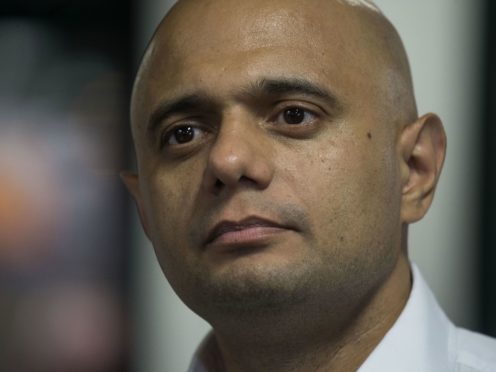Sajid Javid has warned internet giants they could face new laws unless they step up efforts to tackle child abuse content.
The Home Secretary called on the likes of Facebook, Microsoft, Google and Twitter to spearhead the response in the same way as they have intensified activity to remove terrorist material.
Mr Javid said he wants the technology industry to block child abuse material as soon as it is detected, stop grooming taking place on online platforms and work with authorities to shut down live-streamed offending.
No child should suffer the horrific lifelong trauma of #ChildSexualAbuse – but 15% of girls & 5% of boys experience it before they're 16.
Today, Home Secretary @sajidjavid speaks out against the growing threat of online abuse. pic.twitter.com/5PEfHX1zBc
— Home Office (@ukhomeoffice) September 3, 2018
He also urged companies to take a more pro-active approach to helping law enforcement bodies and show a greater willingness to share “best practice” and technology between themselves.
Mr Javid said: “I’ve been impressed by the progress the likes of Google, Facebook, Microsoft, Twitter and Apple have made on counter-terrorism.
“Now I want to see the same level of commitment from these companies and others for child sexual exploitation.
“In recent years, there has been some good work in the area. But the reality is that the threat has evolved quicker than industry’s response and industry has not kept up.
“I am not just asking for change. I am demanding it.
“If technology companies do not take more measures to remove this type of content then I won’t be afraid to take action.
“How far we legislate will be informed by the action and attitude that industry takes.”
More than 130 suspects have been arrested in a crackdown on online child sex offenders. Of the arrests, 13 were registered sex offenders & 19 held positions of trust, with a children’s entertainer, an ex-police officer and 2 special constables. More info: https://t.co/o3UgwTerd8 pic.twitter.com/guT7bE8YzA
— NationalCrimeAgency (@NCA_UK) September 3, 2018
While declaring that some companies’ response to the issue has been “nowhere near good enough”, he declined to “name and shame” them, saying he wanted to give firms a chance to respond to his demands.
His call was echoed by Lynne Owens, director general of the National Crime Agency.
She said: “The technology exists for industry to design-out these offences and stop this material from being viewed.
“Some online platforms have taken important steps to improve safety, but we are asking for more.”
Mr Javid used a speech in central London to set out the “horrifying” and rising scale of paedophile activity on the internet.
He disclosed that the NCA estimates there are up to 80,000 people in the UK assessed as posing some kind of sexual threat to children online.
The Home Secretary also announced an extra £21.5 million in funding for law enforcement to track down the most dangerous offenders and £2.6 million for prevention work.
Google said it has a zero-tolerance approach to child sexual abuse material and has invested in technology, teams and partnerships to tackle the issue over two decades.
The firm announced that it was making available “cutting-edge” artificial intelligence that can dramatically improve how non-governmental organisations and other technology companies review content “at scale” and protect more children.
A Microsoft spokeswoman said: “Child sexual exploitation is a horrific crime and Microsoft works closely with others in industry, government and civil society to help combat its spread online.
“Predators are constantly evolving their tactics and that is why we work collaboratively with other companies … to create tools that protect children online and help bring perpetrators to justice.”
